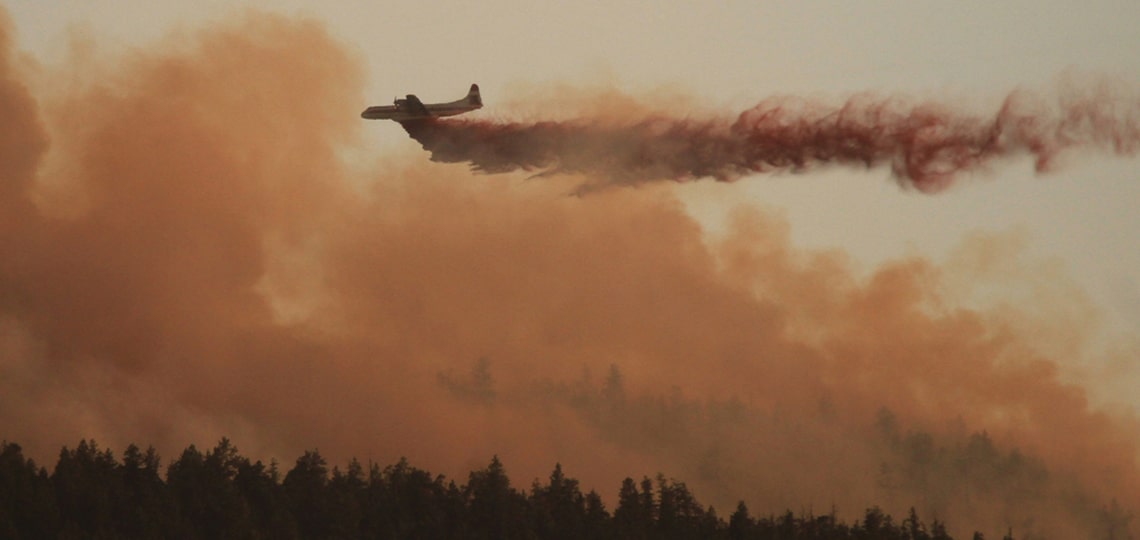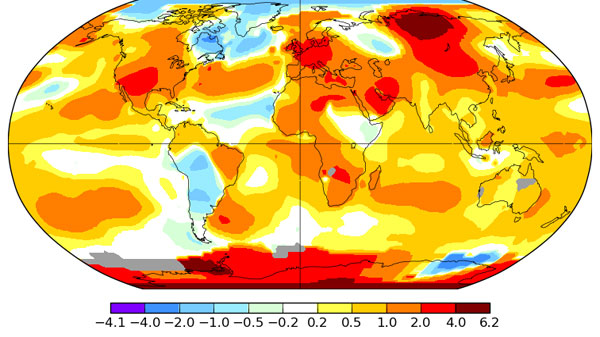To become a global leader in emissions reductions, Canada must put three critical components in place. But first, the federal government’s jurisdiction to introduce and implement climate solutions at a national scale must be upheld.
2018 closed with some bad news: We blew the budget.
After plateauing for many years, global carbon emissions jumped to a record high in 2018, according to the Global Carbon Budget report. This means the Earth is still on track to experience catastrophic effects from climate change.
In Canada, we have not made much progress towards meeting our international targets, as the Auditor General of Canada pointed out in its March 2018 report. We’re going to miss our 2020 targets by 20 per cent, and are set to miss the all-important Paris target for 2030 unless we make real changes that go beyond what’s currently happening or even planned.
The clock is ticking louder and louder. In 2018, a report from the UN’s Intergovernmental Panel on Climate Change (IPCC) said we have less than 12 years to avert climate disaster. And every year that goes by with insufficient action makes it that much harder to protect the health, security and well-being of all Canadians.
Getting to zero emissions: three key components
As a wealthy, technologically-advanced country, Canada can and should be a leader on tackling climate change. Getting Canada on the path to limiting warming to 1.5 degrees Celsius and to zero emissions by 2050 means putting three critical components in place:
- A national law
Whatever policy solution is put in place to curb emissions must be supported by a strong, enforceable law that makes protecting our health, security, and well-being from climate change the law of the land. - Legislated targets
Canada has missed every carbon emissions target it has set. It missed both the 1992 Rio target and the 2005 Kyoto target, and is on track to miss the 2020 Copenhagen target. Meeting the 2030 targets set out in the Paris Agreement — targets Canada championed on the international stage — cannot be voluntary. Making these targets legally binding is essential. - Accountability for achieving those targets
Governments come and governments go, but taking bold, courageous action on climate change is no longer optional. Enforcement mechanisms must also be in place to make sure that governments — regardless of their political stripe — are held accountable for reducing emissions and that progress does not stall when administrations change. No government should be allowed to refuse to take action because the necessary measures are politically unpalatable.
In October, the federal government released details of its carbon-pricing plan, a proposed solution to reduce greenhouse-gas emissions on a national scale. Unfortunately, it was immediately met by resistance from two provinces, Saskatchewan and Ontario, which have each launched constitutional challenges against the “backstop” carbon pricing law. Neither province however, has supplied a comparable strategy for ratcheting down their emissions.
Defending the fed’s jurisdiction over national climate solutions
Ecojustice has stepped into the fray to uphold the federal government’s jurisdiction to respond to the climate change emergency where provinces fail. If Saskatchewan and Ontario are able to wriggle out of doing their fair share to reduce emissions, Canada will not meet its targets under the Paris Agreement and that will harm the health, security, and well-being of all Canadians.
On February 13-14, Ecojustice lawyers will be in court in Regina on behalf of the David Suzuki Foundation and the Athabasca Chipewyan First Nation. We will make the case that protecting the environment is a shared federal and provincial responsibility. Provinces across Canada should be required to establish a fair system that holds polluters to account.
To be clear, carbon pricing is not on trial. It is one of the many tools that are needed to address climate change.
This case is about the federal government’s jurisdiction to introduce and implement climate solutions. If not, efforts to combat climate change could be too easily derailed and left vulnerable to political attacks.
Infighting between governments will not change the reality that Canada needs to reduce its greenhouse-gas emissions, and fast. Federal and provincial governments must all do their part in safeguarding our climate. Ecojustice stands ready to hold them to account if they fail.





